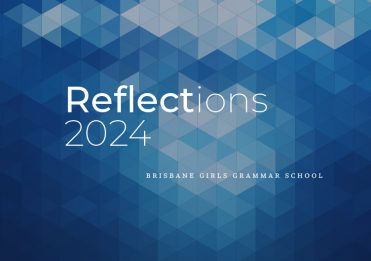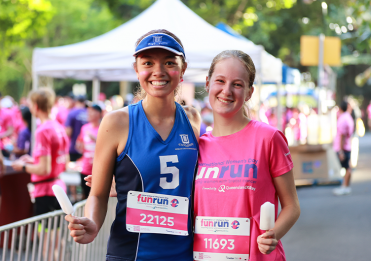The end of term brings a steadfast focus on exams, with an eager glance towards the upcoming break. During this time of hard work and busyness, I am often impressed with the resilience and determination of the young women in our School. After a term filled with exciting events and robust learning, some students are not surprisingly tired from their efforts, but those that I meet have a sense of purpose about their day and their commitments. This doesn’t happen by accident but emerges with rich experiences and support, from both at home and at school.
Many of our students remain buoyant at this time because they are driven by intrinsic goals for their personal growth and community involvement. Research tells us that purposeful youth demonstrate higher wellness (Hill, Sumner, & Burrow, 2014) and life satisfaction (Bronk, Hill, Lapsley, Talib, & Finch, 2009).
Today, a group of Year 7 girls return from their first Outdoor Education experience at Marrapatta. While they may be weary, their wealth of learning from the outdoor classroom is immense. Not only will they have grown in resilience, but they will be more confident and capable, returning to school on Monday with a sense of satisfaction about their achievements. This is a great example of the benefits for our girls when they are engaged with meaningful activity within the School community.
Girls today experience a wealth of opportunities, but guiding them through the sometimes-tricky stage of adolescence, and the competing influences in society, can be challenging. Recently our parent webinar guest speaker, Dr Judith Locke, clinical psychologist and ex-teacher, was able to simplify how parents can guide their children to become confident and capable young people with purpose. It was a very successful evening with high attendance by parents and staff in our community. Judith explained that children need to be loved, but they also need to develop these essential skills:
Resilience—the ability to cope with difficulty
Self-regulation—forgoing current pleasure for future gain, emotional regulation
Resourcefulness—the ability to take the initiative to improve your situation
Respect—for others and authority
Responsibility—wanting to contribute to the community, not just self-focused
Some of Judith’s key takeaways to encourage your child to develop these skills and have a sense of personal agency are:
- each year, have your child do more things for themselves e.g. make their lunch or get themselves to school
- have them learn to cope with unpredictability e.g. roll some dice to see what family member chooses the movie to watch
- allow them to have a bit more say over time, such as when they do their chores
- encourage them to have their own opinion in healthy debate rather than shutting down their differing beliefs.
If you would like to learn more, Judith has published two books for parents. The Bonsai Child is about the foundations—praise, building resilience, helping them deal with difficulty, making them good company, developing their respect, and consequences. The Bonsai Student is about school-related things—schoolwork, morning and afternoon routines, reports, their final year of school and university, and screens. Both books are suitable for parents of children up to their early 20s. Alternatively, parents can read Judith’s regular column on her Confident and Capable or Bonsai Child Facebook page.
Ms Melinda Egan
Dean of Students




